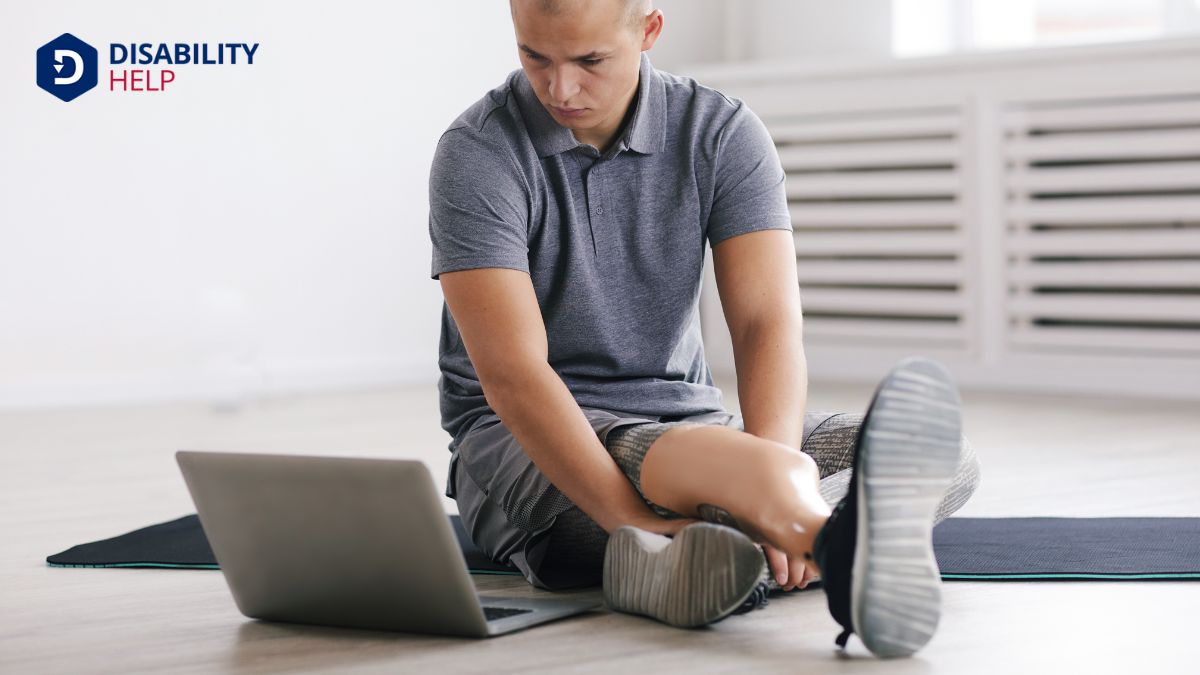When we face a denied disability claim, the initial reaction can be frustration or confusion, but it's crucial to understand that this isn't the end of the road. We have options to challenge the decision and potentially secure the benefits we need. The first step involves appealing the denial within the 60-day timeframe, which keeps our application in play. But what exactly does the appeals process involve, and how can we best prepare for it? Let's explore the necessary steps and strategies that can help turn a denial into an approval.
Key Takeaways
- File an appeal within 60 days to keep the SSDI application active.
- Gather additional medical evidence to strengthen the disability claim.
- Consult a Social Security attorney to improve the chances of a successful appeal.
- Prepare for a potential ALJ hearing, which has a higher approval rate.
- Consider reapplying for benefits with updated and improved evidence.
Common Reasons for Denial

When it comes to understanding why disability claims get denied, it's important to recognize some common pitfalls. First and foremost, insufficient medical evidence is a frequent reason for denied disability benefitsFinancial assistance provided to individuals who are unable to work due to a disability, such as Soc.... The Social Security Administration (SSA) requires detailed documentation to support claims. If our initial application lacks thorough medical records or clear evidence of disability, it's likely to be denied.
Technical errors are another common issue. Incomplete forms, missing information, or simple mistakes can lead to a denial. Ensuring that every section of the application is filled out accurately can prevent these avoidable errors.
Additionally, not adhering to prescribed medical treatments or failing to cooperate with SSA's requests for information can result in a denial. If the SSA sees gaps in treatment or non-compliance, they may question the severity of our condition.
Working while the claim is being reviewed can also jeopardize our SSDI benefits. Earning over the income limit set by the SSA indicates that we mightn't be disabled enough to qualify, leading to a denial.
Lastly, if we don't appeal an initial denial and instead file a new application, we risk being denied at the reconsideration stage for the same reasons. Understanding these pitfalls can help us better navigate the process.
Steps to Appeal a Denial
After receiving a denial notice for our disability claim, the first step is to promptly file an appeal within 60 days. This is important to keep our Social Security Disability InsuranceA form of insurance that provides income to individuals who are unable to work due to a disability. application active. The appeal process typically begins with a request for reconsideration, where a new Social Security Administration (SSA) administrator reviews our case. During this stage, we can submit additional medical evidence to strengthen our claim.
Here are the steps we should follow:
- File the appeal: Submit the reconsideration request within the 60-day window.
- Gather additional evidence: Collect and submit new medical evidence that supports our disability.
- Consult a Social Security attorney: Legal representationThe way people with disabilities are depicted in media, culture, and politics, often influencing pub... can markedly increase our chances of a successful appeal.
- Prepare for potential denial: If reconsideration is denied, we must be ready to request a hearing before an Administrative Law Judge (ALJ).
- Stay organized: Keep track of all documents and deadlines to ensure our appeal proceeds smoothly.
Understanding the Hearing Process
Moving through the hearing process with an Administrative Law Judge (ALJ) is a pivotal step in appealing a denied disability claim. This stage gives us the essential opportunity to present evidence, testimony, and arguments to support our case. The ALJ hearing is where we can directly interact with an Administrative Law Judge who'll review our claim in detail.
Although the waiting time for an ALJ hearing can vary, it typically ranges from 7 to 20 months, so we should be prepared for a potential wait of about one year after a reconsideration denial. This period can be challenging, but it allows us time to gather additional evidence and strengthen our case.
The approval rate for ALJ hearings is hopeful, with around 45-50% of judges issuing favorable decisions. This means that nearly half of those who go through this process may see their disability benefits approved. Presenting clear and compelling evidence and providing honest testimony can markedly impact the outcome.
Understanding this process helps us navigate it more effectively and increases the likelihood of a successful appeal, potentially securing the disability benefits we need for our financial security.
Reapplying for Benefits

Reapplying for disability benefits can be a necessary next step if our initial claim and appeal have been denied. When we decide to reapply, it's important to understand that there are no limits on the number of times we can do this. Each new application gives us a fresh opportunity to present improved evidence and any changes in circumstances that might support our case.
To strengthen our new application, we should focus on the following:
- Updated medical evidence: Submit any new medical records or test results that can substantiate our disability.
- Changes in circumstances: Highlight any new developments in our health or personal situation.
- Work history: Provide detailed information about our employment, including any changes that have occurred since our last application.
- Professional advice: Consider seeking guidance from experts who can help us navigate the reapplication process.
- Legal representation: Though we'll discuss this more later, having a legal expert can significantly enhance our chances of success.
Importance of Legal Representation
Legal representation can greatly improve our chances of success when appealing a denied disability claim. When we face an initial denial, the appeal process can feel overwhelming. A Social Security disability lawyer can make a significant difference. These experienced Social Security disability attorneys know how to rectify any errors in our Disability Application and guide us through each step.
By engaging a disability attorney, we gain not only legal advice but an advocate who understands the complexities of the system. Board-certified attorneys specialized in SSDI benefits have higher success rates, and they can represent us from the initial appeal all the way to a potential Appeals Council review. Their expertise is vital for navigating the intricate legal aspects of our case.
When we've been denied Social Security benefits, it's easy to feel discouraged. However, having an experienced Social Security disability attorney by our side means we're not alone in this challenging process. Their knowledge and experience can increase our chances of a favorable outcome. It's crucial to remember that legal representation isn't just about filing paperwork—it's about strategically advocating for our rights and ensuring our case is presented in the best possible light.
Conclusion
To sum up, if our disability claim was denied, we shouldn't lose hope. By appealing within the 60-day deadline, gathering additional evidence, and possibly seeking legal representation, we can strengthen our case. Preparing for the ALJ hearing is essential, as it offers a chance to present our evidence and testimony. With determination and the right support, we can improve our chances of securing the benefits we need. Let's take action and keep pushing forward together.






